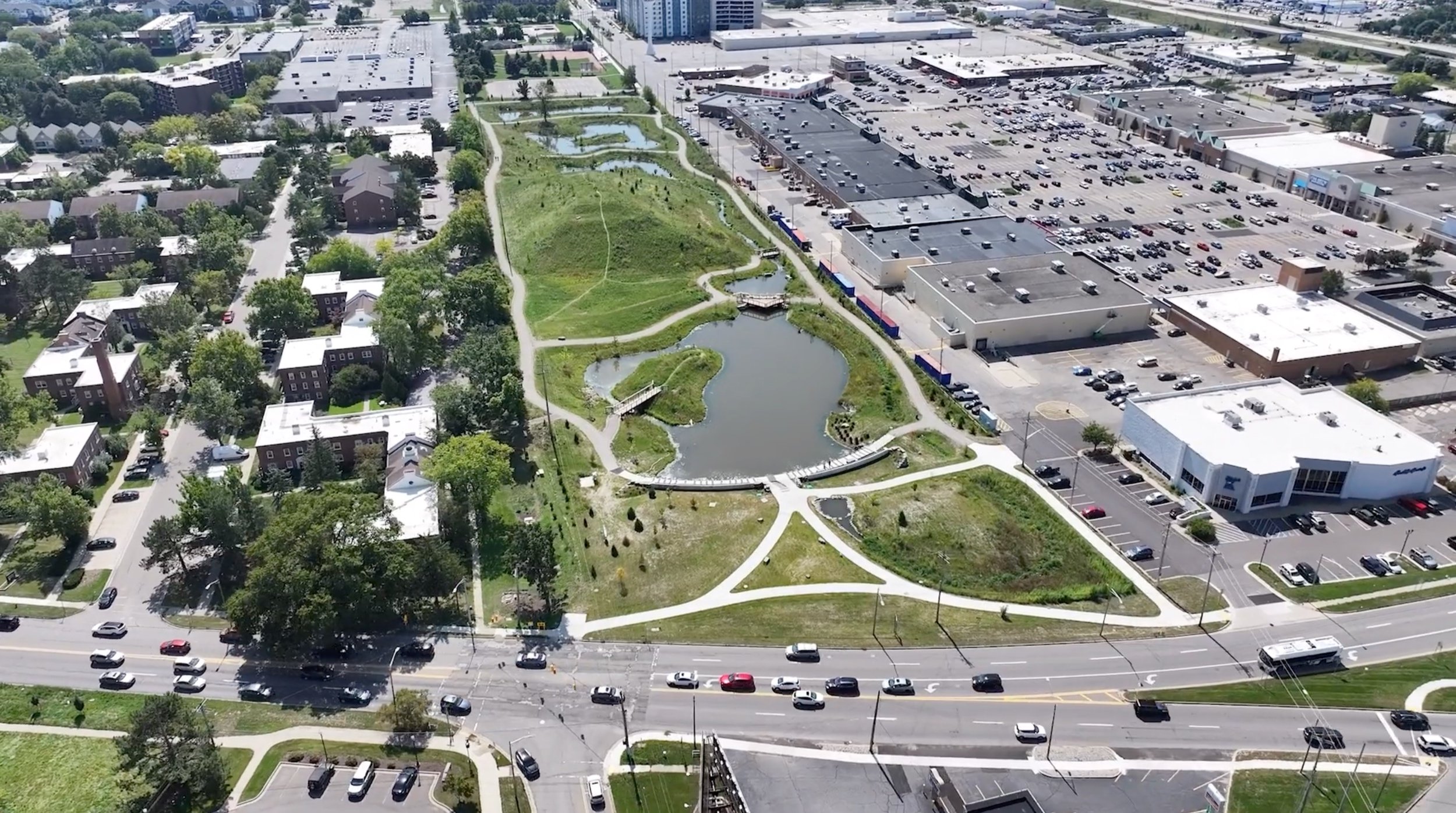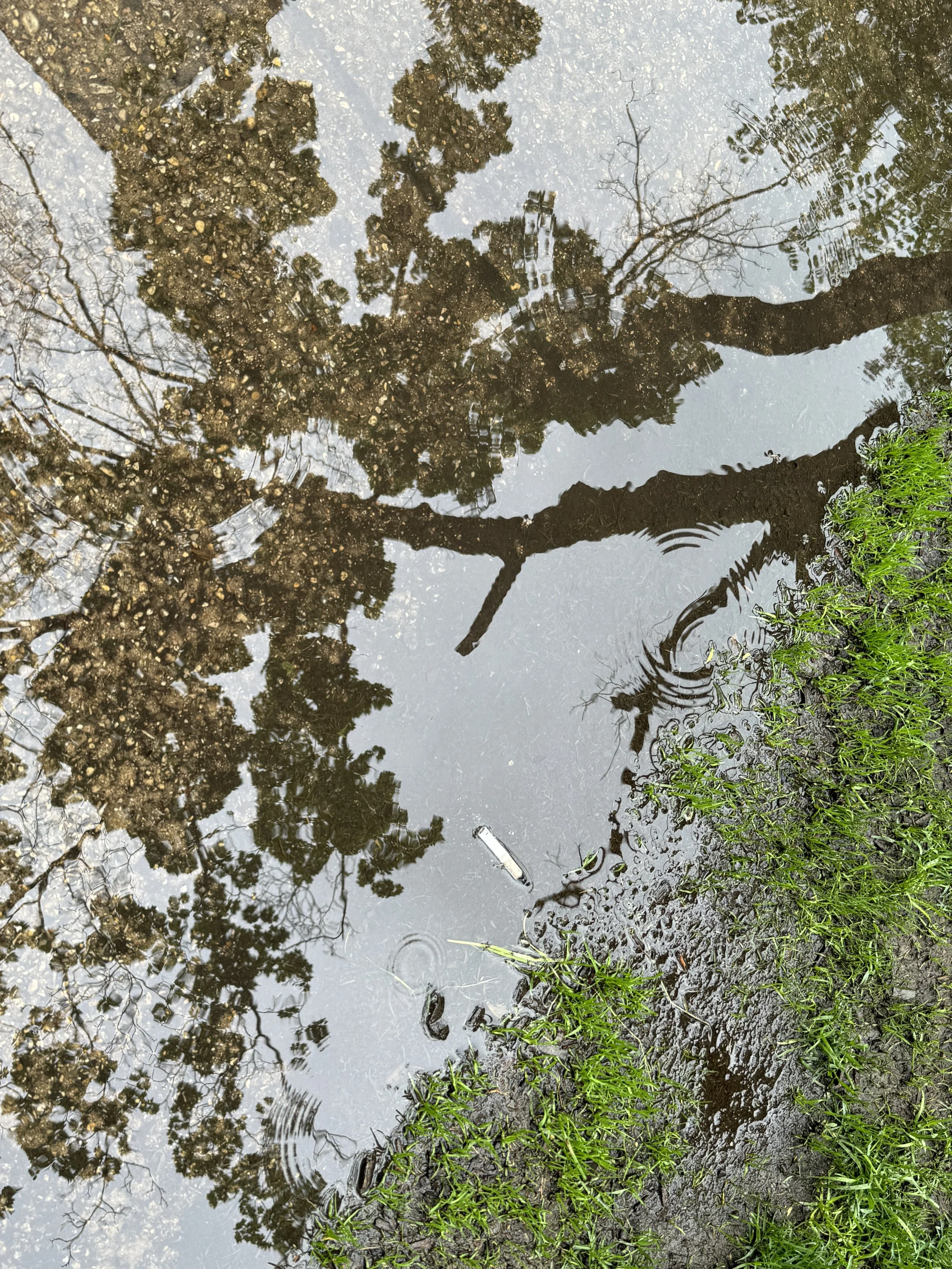
Drain basics
What is a drain? What is a drain commissioner and why do we need one? Learn about the vital parts these play in protecting our quality of life.
What is a drain commissioner?
Drain commissioners, also called water resource managers, are county-level officials responsible for administering laws involving flood protection, stormwater management, and soil erosion. Some specific duties performed by the drain commissioner include: Establishing, improving, and maintaining county drains, reviewing stormwater drainage plans for construction that may impact a county drain and maintaining lake levels (where applicable). Drain commissioners may serve on park boards or lake improvement boards. In some counties, the drain commissioner is also responsible for ensuring compliance with stormwater regulatory programs and operating and maintaining sanitary sewer systems.
Ingham County Drain Commissioner Patrick E. Lindemann repairs a riverbank in the City of Leslie
Why are drain commissioners necessary in Michigan?
Drainage was vital to settlement in Michigan since the state was historically dominated by swamps, posing potential health risks and making the land unfavorable for farming. One of the first laws passed by the new Michigan Legislature was a drainage act that led to the creation of drain commissioners, who since then have played a significant role in ensuring our lands are livable and suitable for agriculture and other uses. Without proper management of stormwater, flooding may occur, adversely impacting homes, businesses, and farmland. Although responsibilities vary by county, all drain commissioners play a role in protecting the health, safety and welfare of the public.
What is stormwater?
Stormwater is rainfall or snow melt that flows over the land, including our lawns, streets, parking lots, farm fields, and buildings. This water runs into our storm drains and ditches and eventually into our lakes, streams, rivers, and drains, carrying with it the pollutants it picks up along the way.
What is a drain?
There are two types of drains: Private drains and public drains.
Drains come in various forms, including natural or artificial creeks or ditches, as well as pipes that carry stormwater. However, not every drain you see is under the drain commissioner's jurisdiction. Some, such as roadside ditches, might be the responsibility of the county road commission or private landowners.
What is a drainage district?
Each established county drain has a legally established area of land known as a drainage district. Drainage district boundaries are typically determined by a drain's watershed. A watershed is an area of land that captures rainwater and eventually carries it to the nearest lake, river, stream, or drain. Watershed boundaries are determined based on topography of the land and, where applicable, storm sewer infrastructure. Within a drainage district, each drop of rainwater soaks in the ground, flows across the land, or enters a storm sewer eventually making it to that district's established drain.
The wildlife of Ingham County Drains
For the Ingham County Drain Commissioner, the success of a drain is not only measured by the health, safety and welfare of citizens, but also by the diversity of wildlife.
What is a drain special assessment?
Special assessments on property owners and governmental units pay for constructing and maintaining drains. Special assessments are the sole source of funding for drainage districts. Each drainage district has a separate financial account so property owners only pay for costs incurred for the drainage district in which their property is located. More information on assessments can be found here.
What types of maintenance do open drains require?
Open drain maintenance can take many forms, including removing fallen trees that are obstructing water flow or dredging to remove sediment. Some drains require preventative or other regular maintenance, while others need less frequent work.
What types of maintenance do enclosed drainage systems require?
Enclosed systems require regular maintenance such as catch basin and pipe cleaning, root removal, and structure repairs. These repairs are especially critical to prevent sinkholes from occurring.
What should I do if I'm experiencing drainage problems?
Contact your local drain commissioner's office to find out what drains are in your area. If any drains are under the jurisdiction of the drain commissioner, he/she may be able to discuss potential solutions.
Ingham County residents can find contact information at the bottom of this webpage.
How can I help protect our water resources?
Stormwater is likely to end up in a local waterway or ultimately one of the Great Lakes. Property owners can follow a number of easy steps to help protect these precious resources, including:
Don't dump waste such as pesticides, oil, paint, or dog waste into catch basins or drains
Sweep yard debris such as grass clippings and dirt back onto the lawn instead of sweeping or hosing them into a storm drain
Landscape with native plants that are adapted to conditions in your area and therefore require less watering, pesticides and fertilizers
Capture rain water with a rain barrel and use it to water your lawn and plants.


